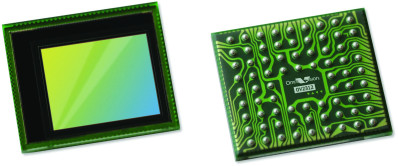Dual-Mode Automotive Image Sensor for Single-Camera Driver State Monitoring and Viewing Applications
June 12, 2019
on
on
 OmniVision Technologies, Inc., a leading developer of advanced digital imaging solutions, announced their OV2312 automotive image sensor, which enables multiple functions in one camera. This multi-functional approach reduces total system cost, space and power budget for driver state monitoring (DSM) and viewing applications like video conferencing.
OmniVision Technologies, Inc., a leading developer of advanced digital imaging solutions, announced their OV2312 automotive image sensor, which enables multiple functions in one camera. This multi-functional approach reduces total system cost, space and power budget for driver state monitoring (DSM) and viewing applications like video conferencing.“The global automotive image sensor market is poised to experience accelerated growth due to the increased demand for driver state monitoring,” said Thilo Rausch, product marketing manager at OmniVision. “At the same time, automotive designers are looking for cost-effective ways to address consumer demand for applications like video conferencing in the mainstream car segment. By providing a dual-mode sensor that fuses human and machine vision capabilities, we are enabling designers to address both trends with a single camera.”
The ability to capture both RGB and IR images with one global shutter (GS) sensor reduces the number of cameras and total system cost. The OV2312 enables those dual-mode cameras with motion-artifact-free images at high resolutions of 1600 x 1300 at 60 fps and 1280 x 720 at 90 fps. Additionally, because this is the smallest 2 MP GS sensor in its class—offered in a 7.2 x 6.1 mm automotive chip-scale package—cameras can be placed out of sight from drivers and passengers.
For operation without visible light, the OV2312 features the 3.0-micron OmniPixel®3-GS architecture, which provides an industry-leading near-infrared quantum efficiency of 14% at the 940 nm wavelength, along with excellent modulation transfer function (MTF). Not only does this sensor capture images with the high quality required for driver eye and gaze tracking when running in single mode at 60 fps, it also reduces system power consumption and cost by using fewer IR LEDs. The sensor itself only consumes an industry-leading 190 mW in typical conditions. This greatly reduces the heat generated, which further ensures optimal sensor performance for interior cameras that operate continuously in confined spaces.
To further ensure top DSM performance while minimizing power consumption, the OV2312 can be synchronized with the on/off pulses of the system’s IR light source. Additionally, its array size of 1600 x 1300 pixels is designed to fit the driver head box in a way that ensures reliable monitoring regardless of driver height, seat position or vehicle cockpit design.
OV2312 samples are available now, and it is AEC-Q100 Grade 2 certified for automotive applications.
(190248)
➔ Do you want to read more ElektorLabs articles? Become an Elektor member now!
Read full article
Hide full article


Discussion (0 comments)